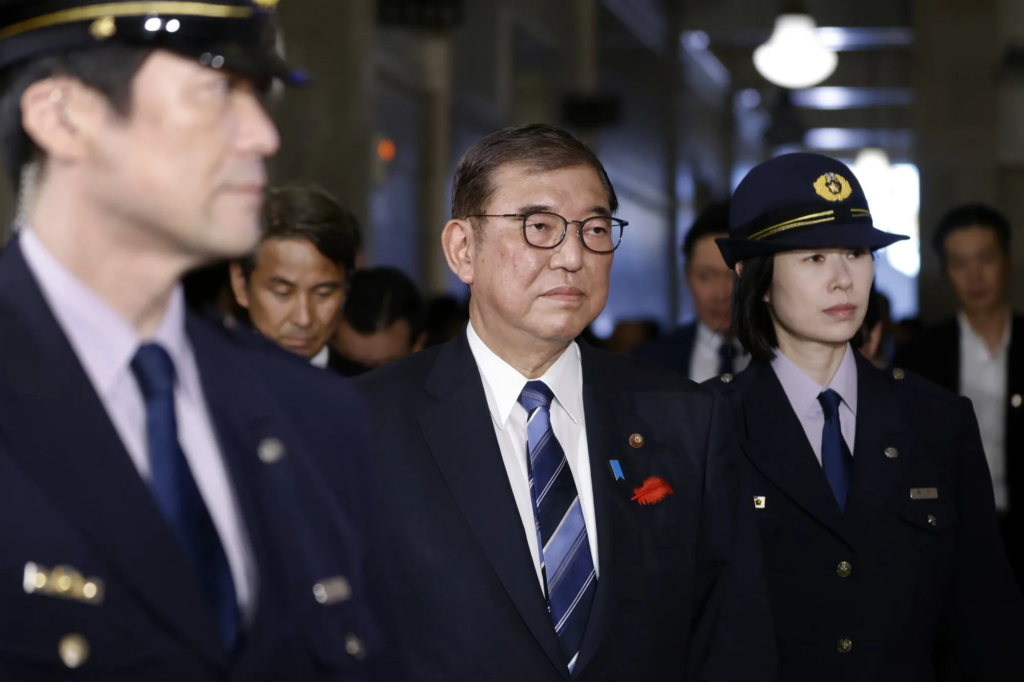Japan’s Political Landscape: The Dissolution of Parliament and Upcoming Snap Election
On October 9, 2024, Japanese Prime Minister Shigeru Ishiba dissolved the lower house of Parliament, paving the way for a snap election scheduled for October 27. This strategic move comes just nine days after Ishiba assumed office, following the resignation of his predecessor, Fumio Kishida, amid corruption scandals. The decision to call for an early election is a calculated effort by Ishiba to secure a mandate for his nascent government while the political climate remains favorable.

Context and Background
Shigeru Ishiba’s rise to the premiership marks a significant shift in Japan’s political dynamics. His predecessor, Fumio Kishida, led the Liberal Democratic Party (LDP) for three years but stepped down due to mounting public distrust over funding scandals involving party members. Ishiba, known for his strong stance on defense and regional development, aims to leverage his initial popularity to consolidate power and push through his policy agenda.
The Strategic Timing of the Election
The timing of the snap election is crucial. By dissolving Parliament early, Ishiba seeks to capitalize on the “honeymoon” period of his leadership, a time when new leaders typically enjoy heightened public support. This move is intended to preempt potential challenges and criticisms that could arise as his administration progresses. However, this strategy has not been without controversy. Critics argue that the decision prioritizes political maneuvering over substantive policy debate, leaving little time for thorough discussion on key issues.
Key Issues at Stake
Several critical issues will dominate the election campaign. Ishiba’s policy platform includes increased defense spending and initiatives to support regions struggling with Japan’s demographic crisis. These policies reflect his broader vision of a resilient and balanced Japan, capable of addressing both external threats and internal socio-economic challenges.
The opposition, although fragmented, will likely focus on the need for transparency and accountability in government, leveraging the recent scandals that plagued the LDP. Economic policies, social welfare, and Japan’s role on the global stage will also be pivotal topics as candidates vie for voter support.
Implications for Japan’s Future
The outcome of the October 27 election will have significant implications for Japan’s political stability and policy direction. A strong mandate for Ishiba could enable swift implementation of his policy agenda, potentially reshaping Japan’s defense posture and socio-economic landscape. Conversely, a fragmented or weak mandate could lead to political gridlock, hampering efforts to address pressing national issues.
In conclusion, the dissolution of Parliament and the upcoming snap election represent a critical juncture for Japan. As voters head to the polls, the decisions made in this election will shape the country’s trajectory in the years to come, determining how effectively it can navigate both domestic challenges and international dynamics.




















